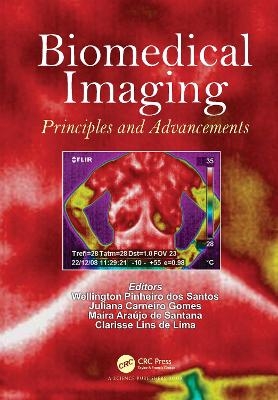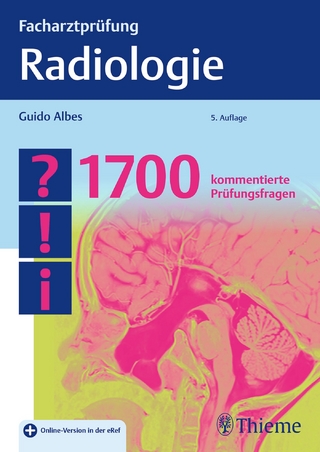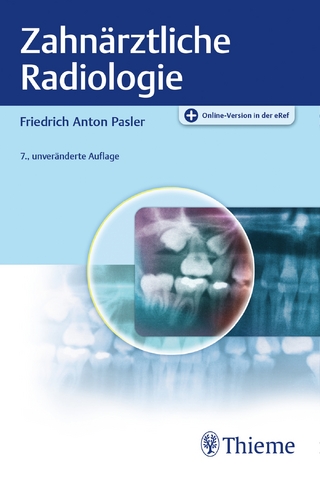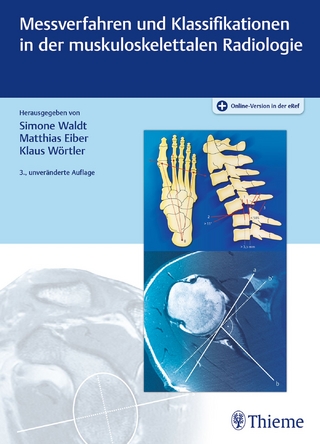
Biomedical Imaging
CRC Press (Verlag)
978-1-032-41715-8 (ISBN)
Wellington Pinheiro dos Santos, an accomplished academic, earned his Electrical and Electronic Engineering degree (2001) and a Master’s degree in Electrical Engineering (2003) from the Federal University of Pernambuco. Holding a Ph.D. in Electrical Engineering from the Federal University of Campina Grande (2009), he is currently an Associate Professor at the Department of Biomedical Engineering, Federal University of Pernambuco. With expertise in Computer Science, he excels in digital image processing, pattern recognition, computer vision, and computational intelligence. As a respected member of professional societies, including SBEB and IFMBE, he contributes significantly to the fields of Computing and Engineering in Medicine and Biology. Juliana Carneiro Gomes, a Biomedical Engineer from the Federal University of Pernambuco (UFPE-2016), enriched her education through a sandwich program at Mercer University in the United States, sponsored by the Sciences without Borders (CAPES) program. During this academic sojourn, she conducted research at the Advanced Imaging Algorithms and Instrumentation Laboratory at Johns Hopkins University School of Medicine, focusing on Computed Tomography (CT) Image Processing. Her academic journey continued with a Master’s in Biomedical Engineering from CTG/UFPE (2019), where she specialized in Electrical Impedance Tomography (EIT), emphasizing image reconstruction using Artificial Neural Networks. Currently holding a Ph.D. in Computer Engineering from the University of Pernambuco (UPE), Juliana is an active member of the Biomedical Computing Research Group at UFPE, contributing to research in Applied Neurosciences. Her dedication extends to her previous role as a Substitute Professor at UFPE’s Physics Department. Maíra Araújo de Santana, holding a Ph.D. in Computer Engineering from the University of Pernambuco (UPE), has a rich academic background with bachelor’s and master’s degrees in Biomedical Engineering from the Federal University of Pernambuco (UFPE). As a dedicated member of the Biomedical Computing Research Group at UFPE, her research spans Affective Computing, pattern recognition for early breast cancer diagnosis, and Applied Neurosciences. Maíra’s international experience includes participation in the Science without Borders program in the United States, where she spent an academic year at the University of Alabama at Birmingham (UAB) and contributed as a researcher at the Carl E. Ravin Advanced Imaging Laboratories (RAI Labs) at Duke University, NC. This experience deepened her expertise in medical image processing. Clarisse Lins de Lima is a distinguished researcher with a degree and a master’s in Biomedical Engineering from the Federal University of Pernambuco, Recife, Brazil. She further pursued her Ph.D. in Computer Engineering from the Polytechnique School of the University of Pernambuco, Recife, Brazil. Clarisse’s research focuses on cutting-edge areas, including digital epidemiology, digital processing of biomedical images and biosignals, as well as the development of intelligent diagnostic support systems. Her work demonstrates a keen interest in applying computational intelligence to advance the fields of medicine and biology.
Foreword. Preface. BIOMEDICAL IMAGING FUNDAMENTALS. Introduction to Biomedical Imaging and Image Processing. Magnetic Resonance Imaging: Functional and Anatomical Imaging Methods and Applications. Infrared Thermography: Principles and Applications in Healthcare. Electrical Impedance Tomography: Fundamentals and Applications. BIOMEDICAL IMAGING APPLICATIONS. Alzheimer’s Disease Image Diagnosis. Classification of Motor Phenotype in Parkinson’s Disease Using Images from Fast Wavelet Transform and Machine Learning. COVID-19 Clinical Diagnosis by Images and Signals. Multimodal Sentiment Analysis from Facial Images and Signals Converted to Images. Images as Signals in Motor Imagery. Skin Cancer and Hansen’s Disease Diagnosis. Functional Image Detection. Classification of Alzheimer’s Diffusion Images. Biomedical Images Datasets. Index. About the Editors.
| Erscheinungsdatum | 03.10.2024 |
|---|---|
| Zusatzinfo | 43 Line drawings, black and white; 36 Halftones, black and white; 79 Illustrations, black and white |
| Verlagsort | London |
| Sprache | englisch |
| Maße | 178 x 254 mm |
| Gewicht | 585 g |
| Themenwelt | Medizinische Fachgebiete ► Radiologie / Bildgebende Verfahren ► Radiologie |
| Medizin / Pharmazie ► Physiotherapie / Ergotherapie ► Orthopädie | |
| Studium ► Querschnittsbereiche ► Epidemiologie / Med. Biometrie | |
| Naturwissenschaften ► Biologie ► Humanbiologie | |
| Naturwissenschaften ► Biologie ► Zoologie | |
| Technik ► Medizintechnik | |
| Technik ► Umwelttechnik / Biotechnologie | |
| ISBN-10 | 1-032-41715-3 / 1032417153 |
| ISBN-13 | 978-1-032-41715-8 / 9781032417158 |
| Zustand | Neuware |
| Informationen gemäß Produktsicherheitsverordnung (GPSR) | |
| Haben Sie eine Frage zum Produkt? |
aus dem Bereich


